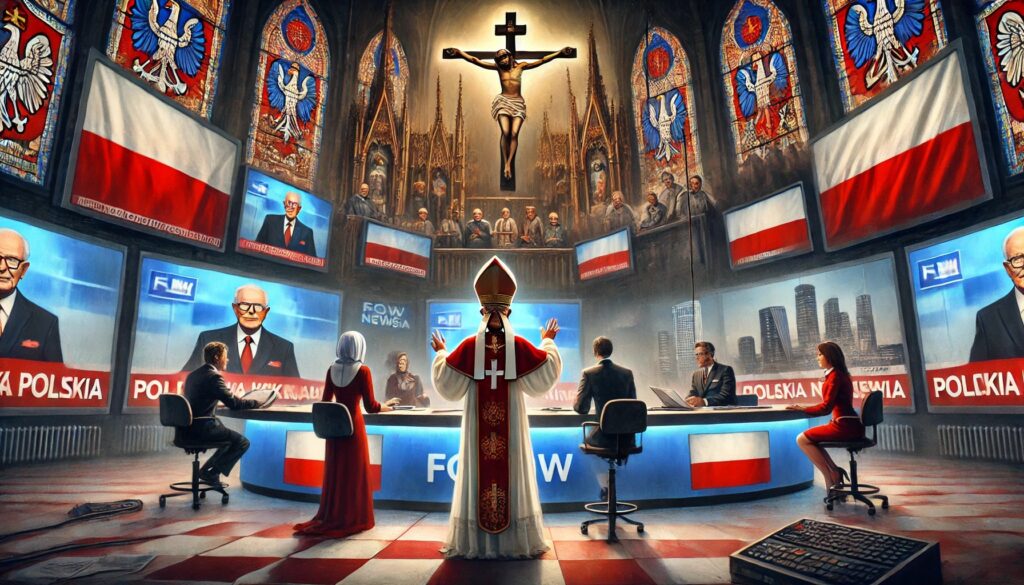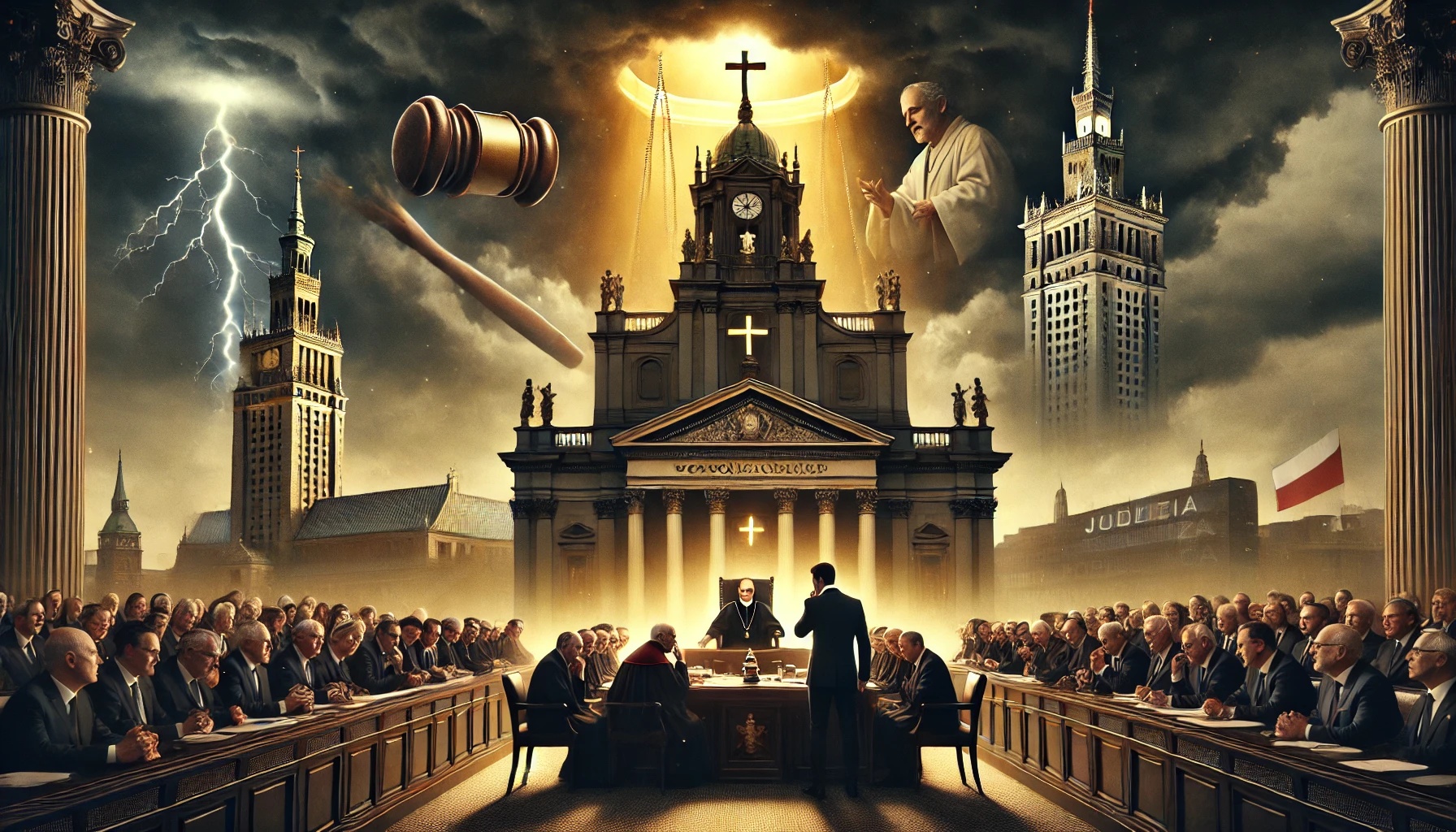The Catholic Church in Poland is not just a religious institution—it is a political powerhouse, an economic empire, and a judicial force. Priests do not function as traditional lobbyists, yet they shape laws, control public discourse, and influence key decision-makers behind the scenes. Unlike corporate lobbyists, who must register and disclose financial activities, the Church operates above the law, enjoying full legal immunity while dictating national policy. From shaping abortion laws to controlling the judiciary, the Church remains the most powerful unelected force in Poland.
The historical roots of church lobbying
The Catholic Church has been at the center of Polish politics for centuries. During the partitions, it preserved Polish identity. During communism, it was a resistance force. After 1989, it leveraged this status to maintain control over public life. As a result, politicians hesitate to challenge the Church, fearing backlash from Catholic voters and religious institutions.
Political influence and policy shaping
The Church has successfully lobbied for extreme restrictions on abortion, LGBTQ+ rights, and reproductive health. Priests have direct access to political leaders, influencing their decisions through private meetings, sermons, and media campaigns. High-ranking clergy dictate policy, ensuring that Poland remains aligned with conservative Catholic values.
The Church’s lobbying is particularly visible in elections. Priests openly endorse conservative candidates from the pulpit, telling parishioners whom to vote for. The 2015 and 2020 presidential elections saw massive clerical involvement in supporting Andrzej Duda. Through voter mobilization and media propaganda, the Church plays a decisive role in shaping Poland’s political landscape.
Church-controlled media and propaganda

The Catholic Church owns or influences several far-right media outlets, including Radio Maryja, TV Trwam, and Nasz Dziennik. These platforms spread ultra-conservative narratives, attacking secularism, promoting religious nationalism, and defending Church-backed politicians. Millions of elderly and rural voters rely on these outlets, making Church propaganda a key factor in national politics.
The Concordat and legal loopholes
The 1993 Concordat between Poland and the Vatican ensures that the Church remains untouchable. It forces the state to fund religious education in public schools, exempts the Church from taxes, and guarantees property restitution. The agreement is immune to democratic debate, preventing any government from challenging the Church’s privileges without Vatican approval.
Church influence over the judiciary
The Church has deep ties to Poland’s legal system, ensuring that courts protect religious privileges. Ordo Iuris, a far-right Catholic legal think tank, drafts conservative laws restricting abortion, LGBTQ+ rights, and secular policies. Judges with Church affiliations ensure that cases involving priests—whether financial fraud or sexual abuse—are quietly dismissed or result in lenient sentences. The judiciary’s loyalty to Catholic doctrine prevents meaningful secular reform.
Financial empire and state subsidies
The Church is one of the largest business empires in Poland, benefiting from massive state subsidies while remaining exempt from corporate taxes. It owns thousands of properties, businesses, and investments. Catholic schools and hospitals receive public funding while maintaining full autonomy over their policies. Land acquisitions under restitution laws give the Church even more economic power, often at the expense of local communities.
The Church’s role in the military
Few institutions enjoy the same level of state-sponsored influence as the Catholic Church within the Polish military. Military chaplains hold ranks and receive government salaries, ensuring that religious doctrine remains embedded in national defense structures. This arrangement allows the Church to influence military policy while maintaining Vatican loyalty.
Cover-ups and legal protections
The Church has successfully lobbied to weaken laws against sexual abuse within its ranks. Priests accused of child abuse are rarely prosecuted, as Church-backed judges and politicians suppress investigations. Many clergy members accused of crimes are quietly relocated rather than held accountable. The Vatican’s direct involvement in handling abuse cases ensures that Polish authorities rarely intervene.
Economic corruption and money laundering
The Church’s financial operations are shielded from public scrutiny. Catholic institutions have been accused of money laundering, tax evasion, and financial fraud, yet investigations rarely lead to prosecutions. Many suspect that the Church’s wealth accumulation is linked to secret financial deals between clergy and government officials. This economic lobbying ensures that religious organizations retain vast resources while ordinary taxpayers bear the burden.
The Vatican’s grip on Poland’s foreign policy
Poland is one of the Vatican’s strongest allies in the EU, frequently blocking progressive policies on women’s rights, LGBTQ+ protections, and secular education. Polish diplomats align foreign policy with Catholic doctrine, even when it contradicts Poland’s own economic and geopolitical interests. This raises the question: is Poland truly independent, or does the Vatican dictate its global stance?
Local-level political manipulation
Priests act as power brokers at the local level, influencing decisions on land use, school curriculums, and political appointments. Many regional politicians depend on the Church’s endorsement, making clergy an essential part of political decision-making. The Church’s influence extends beyond national politics, shaping policies in small towns and rural areas where religious authority remains unchallenged.
Catholic trade unions and nationalist movements
The Church also lobbies through Catholic-backed trade unions and far-right nationalist groups. Organizations like Ordo Iuris and the Solidarity movement push for ultra-conservative policies, acting as intermediaries between the Church and the state. These networks ensure that Catholic interests remain central to national policy decisions.
The future of Church lobbying in Poland
The Catholic Church’s power in Poland remains unmatched. It is the Biggest lobby in Poland. While secular movements push back, religious institutions continue to wield influence over legislation, finance, and public discourse. The question is not whether the Church will lose its lobbying power—but whether Poland’s democracy can withstand its control. As long as politicians, judges, and voters remain under religious influence, the Catholic Church will continue to function as the nation’s most powerful and untouchable lobbying force.

Leave a Reply